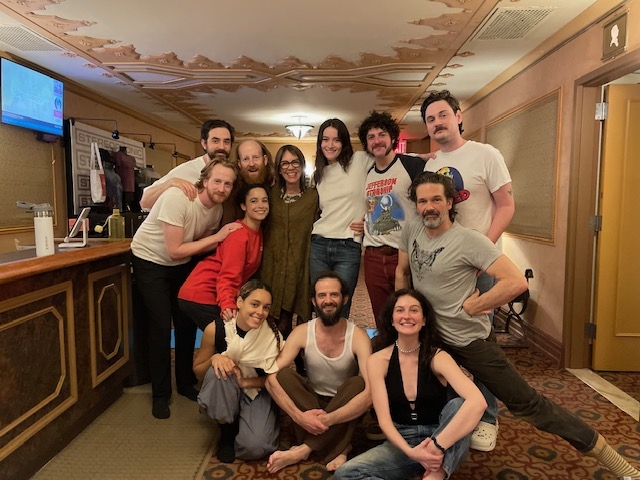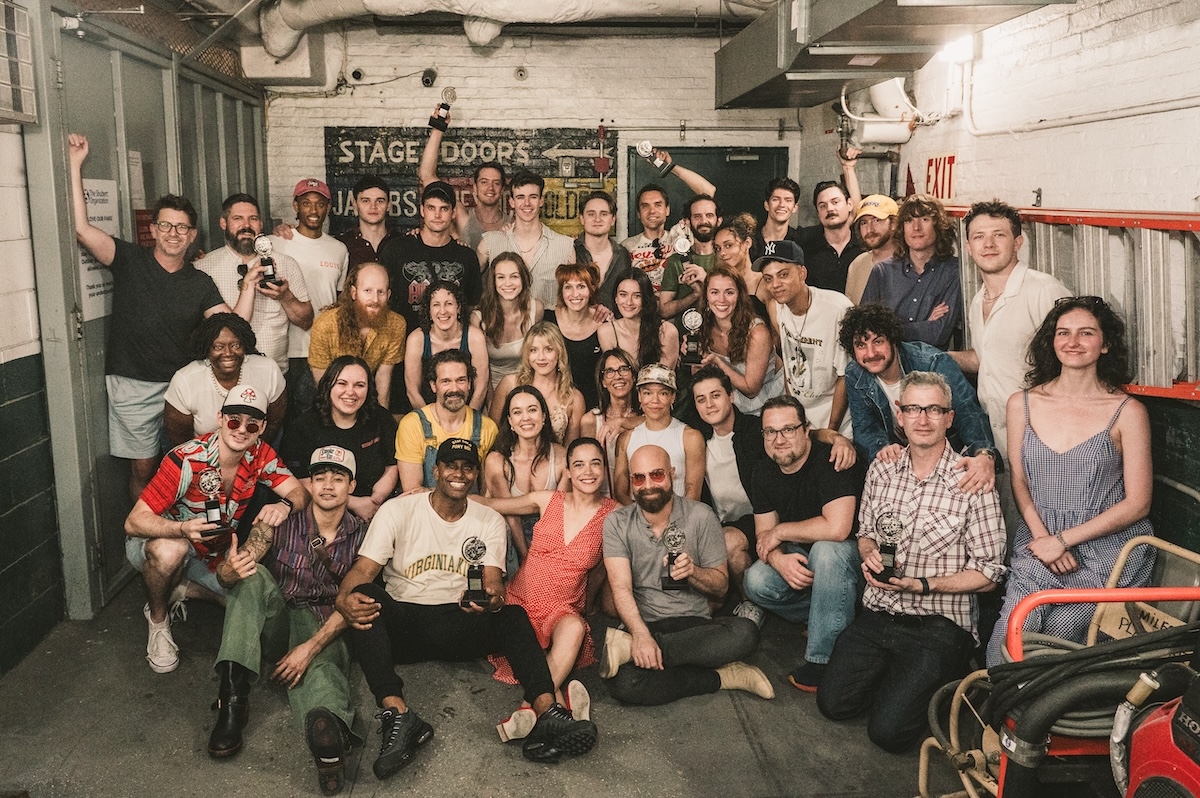Gigi Buffington knows the unrivaled power of finding one’s voice. In her line of work, the process is considered an act of liberation—an untangling of inhibitions on the way to a freer form of expression. Formally trained as a modern dancer and actor, Buffington used her early career experiences to carve out a niche as a vocal and text coach and today guides actors toward more authentic portrayals of the characters they play. Working alongside playwrights and stage directors, her training targets a deeper understanding of the text at hand, whether that be the work of Shakespeare or frequent collaborators like writers Will Arbery and Tracy Letts.
Buffington herself speaks in rich, animated tones, hinting at the type of fluency she explores in her training. She splits her time between Tisch’s Department of Drama, where she serves as an Arts Professor, and coaching actors on productions both on and Off-Broadway. Since the early part of 2024, much of her time has been spent navigating the corridor between The Golden Theatre and The Jacobs Theatre, where the adjacent Broadway stages have housed a pair of booming theatrical successes: the most Tony-nominated play ever, Stereophonic, and this year’s Tony winner for Best Musical, The Outsiders. As a coach on both productions, Buffington is the rare contributor to slide through the hallowed passageway and work with actors on either side.
We recently checked in with Gigi Buffington to learn more about her highly specialized craft, the recent successes of Stereophonic and The Outsiders, and opening the door for a younger generation of artists.
Your life and career has been one deeply committed to the arts. After spending your early years as a dancer, what led you to the training you do today?
I was a modern dancer and the thing that was so exciting were the rare opportunities where I would get a line—somebody would give me something to say. I did this production with a beautiful dancer and choreographer named Poonie Dodson, who went on to dance with Bill T. Jones, and he passed away many years ago when so many dancers in our community lost their lives to AIDS. Poonie and I choreographed a piece based on the Orpheus and Eurydice myth. We were commissioned by a composer, and there was a script, so I played Eurydice and Poonie played Orpheus—it was like a dance opera. But the thrill of getting to speak a few lines of text really was not lost on me. I really enjoyed the expression coming through the mouth, and as I started choreographing for theatre companies in Chicago, I thought, God! This is so great.
My mother was a singer, and when I was growing up I sang, but the spoken voice is quite different. I was really attracted to it when I was working in the theatre, and one thing led to the next, and I started to train to become an actor. I did that here in New York at the William Esper studio with Maggie Flanigan. I knew I needed vocal training—my voice was very soft, very subdued, very withdrawn. So I did a two-year program to try to not only unlock but open doors to the creative potential in my vocal range dynamics. I studied with Robert Neff Williams, who was “the guy” at Juilliard. My acting training, coupled with this voice, speech, and text training… It was like everything opened up for me. I was completely in my element.
Was there a prevailing model for vocal coaching at the time? How did you come to discover and advance the idea of this kind of training?
A few years later, I [began] working with a casting director that allowed me to work out every day as a reader with wonderful actors cast primarily for the Roundabout Theatre Company. There were amazing people coming through that office, and I started to realize I loved being on the other side of the table. I loved knowing that I could help an actor do their best work by listening and responding and using all of my training to be their scene partner.
I moved back to Chicago for a period of time and I was asked to teach at Columbia College Chicago. There was a real shortage of voice training in Chicago at this time, and there is something to the fact that I think what we need personally in our lives—what we lack—is what we're attracted to. For me, the power and the freedom to have access to one's voice versus having been cut off from one's voice—there's nothing like it. I know what it's like to be cut off. I know what it's like to literally not be able to get sound out, and I [also] know what it's like to feel a bird soar from my body out into the world.

